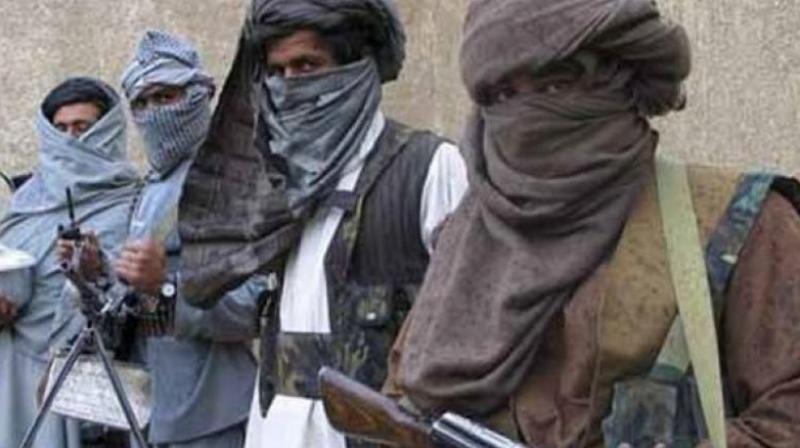Wide Angle: Soldiers trained for jihad need to fight wars without end

My visit to Ooty some years ago coincided with the famous Ooty Hunt having been discontinued. This was in response to animal rights activists’ demands to end the cruel sport, exactly the reason for which it had been ended in England. Just as well that the curtain was brought down on a sport inherited from the Raj, but what would happen to the hundreds of hounds of impeccable pedigree trained specially for the Hunt? They were being looked after in an expansive kennel. They looked cheerful when I saw them. Strange the connections the mind makes. Trained hounds, when redundant, can be housed in kennels, walked, and distributed among dog lovers. What does mankind do with trained jihadis? They have been trained to kill “kafirs” and blow themselves up with promises of houris in paradise. After a jihadi has served his ghoulish purpose, what are his trainers supposed to do with him? Send him elsewhere on another jihadi expedition?
The late King Abdullah of Saudi Arabia had given the Syrian portfolio to his flamboyant minister for interior, Prince Bandar bin Sultan. Among his various audacious expeditions was a secret visit to the Kremlin where he offered Russian President Vladimir Putin the moon if only he (Putin) could let him have Syrian President Bashar al-Assad’s head on a platter. His next offer, Prince Bandar thought, would be one Mr Putin would not be able to refuse. He (Bandar) would guarantee that the Winter Olympics in Sochi that year would not be interrupted by terrorists. Mr Putin said he knew the Saudis controlled militant groups across the Caucasus. An obvious question would arise in the reader’s mind: how did this top secret initiative become public knowledge? Well, it remained a secret until Prince Bandar’s multiple indiscretions caused the Kremlin to expose him by leaking the clandestine initiative to a Beirut newspaper.
To the terrorist groups Bandar bin Sultan claimed to control in the Caucasus must now be added so many from operations in Kobane, Aleppo, Idlib, Hama, Homs, Palmyra, Mosul, Raqqa, Kirkuk, Deir ez-Zor, and so on. I actually saw it all begin when I travelled to Homs, Hama, Daraa at the outset of the Syrian tragedy when US ambassador Stephen Ford was promoting democracy, meeting insurgents. It was an open roadshow. Americans had said at the outset of their involvement in Syria that they would not have boots on the ground. The Russians had indicated no such squeamishness. In other words, the Russians would have a ringside seat at the Americans’ messy involvement with Nusra here or Al Qaeda there. If you find my tone at variance from what you have seen or read on Syria, do please watch the US congressional hearings with US Army commanders managing the Syria show. Not to be missed is hapless former defence secretary Ashton Carter admitting before a full press contingent how a $500 million programme to train Syrians had to be abandoned as the trainees handed their weapons to Jabhat al Nusra and found safe passage to some unknown location.
Has the strategic community forgotten Blackwater founder Eric Prince’s idea of “governing” Afghanistan exactly as the British governed India in the early 20th century — under a “viceroy”. Yes, the written proposal was under active consideration by the US President last summer, with his adviser Steve Bannon grinning from ear to ear at the prospect of Afghan raw materials funnelled suitably into Mr Trump’s “America First” kitty. The Atlantic magazine has details on that theme. The deal was almost done. Never mind if they were not allowed to reinvent the British empire in Afghanistan. The world’s biggest provider of mercenary fighting units controls other fiefdoms. They are part of the core group advising the Abu Dhabi ruler. Thanks to Blackwater, Latin American soldiers are fighting for the Saudis in Yemen. How will countries like Colombia utilise their citizens trained and tested in combat when they return home? Bogota may not have the money to afford Blackwater, but surely Mr Trump may find battle-ready Colombians useful against a country on his hitlist — Venezuela.
The most sinister part of the post-9/11 wars inaugurated by the United States is their endlessness. In its first, experimental stage, this jihadism was able to push back Soviet power from Afghanistan in 1989. The carelessness with which the US turned its back on what it had unleashed was stunning. US strategist Zbigniew Brzezinski’s terse comment was typical: “We were focused on bringing down the Soviet Union; we were not worried about some stirred-up Muslims.” These “stirred-up” Muslims boomeranged in Kashmir, Cairo, Algiers. The post-9/11 wars, with jihadist foot soldiers, have left a rich crop of jihadists in platoon and company strength.
Robert Fisk, the authoritative British journalist who is regarded as a Middle East expert, has a telling piece in the Independent: “ISIS has lost Raqqa — so where will its fighters head to next?” The Syrian democratic forces, mostly Kurdish, backed by Americans, were supposed to be fighting ISIS. What has actually happened is mind-boggling. US air power has flattened Raqqa on the scale of Dresden in the Second World War. But, by Fisk’s testimony, 275 ISIS fighters have been freed to go where they like. Deir ez-Zor is one destination. But they can be relocated far afield to unsettle any targeted society with a Muslim minority.
The Moscow initiative on Afghanistan had anticipated some of this. When China, Iran, Afghanistan, Pakistan and eventually even India and several Central Asian countries met in Moscow in April, the main item on the agenda was that the Taliban, being an Afghan entity, should be incorporated into the Kabul power structure. It was claimed that this move would isolate ISIS, Al Qaeda and their affiliates and thus prevent them from unsettling countries in the region. The Moscow initiative came after Mr Trump’s announcement that he would drastically scale down in Afghanistan. But, true to form, Mr Trump changed his mind. He is now embarked on open-ended involvement in Afghanistan — with all accompanying dangers — including Afghanistan becoming a hatchery for multiples of ISIS and Al Qaeda. The Mujahideen will have come full circle.

